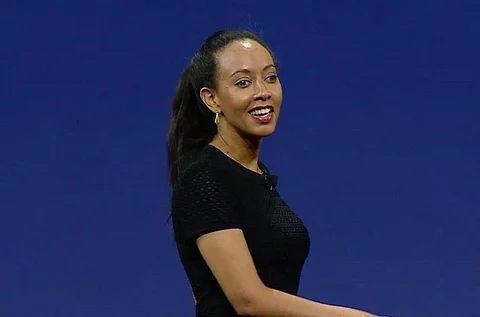

Preparing for my interview with Haben Girma, an accessibility advocate who is also the first deaf-blind person to graduate from Harvard Law School, one of the foremost things on my mind was figuring out correct terms.
As it turns out, Haben (who is in Bengaluru for the two-day India Inclusion Summit on disability) is sympathetic to my problem. She agrees that choosing between a welter of terms like disabled, differently-abled, special needs, special-gifted and so on is a difficult task.
But, Haben points out that there’s a lesson in this profusion of terms: There’s so much difference in the world, and the one cardinal rule to follow is don’t assume you know anyone else’s choices.
“The most irritating thing for me is people making assumptions. It’s ok if you don’t know. Just ask me. And with any different minority group, it’s best to just ask them, ‘How do you identify? What do you need?’, rather than making assumptions,” she explains.
For Haben, the question is important because she sees that words, ideas and the stories built into them decide how inclusive society is. It’s when we don’t think about what narratives we’re assuming when we use words in a certain way, that we end up building barriers for different kinds of people to come together in society, she says.
Once a practising lawyer, Haben focuses on teaching and training to build thinking around disability as an asset. She has received a lot of recognition for her work, including being named in the Forbes “30 Under 30” list of young achievers and a White House “Champion of Change”.
.jpg?w=640&auto=format%2Ccompress)
Yet, Haben dislikes being called an “inspiration”. “It carries an automatic sense of charity,” she explains, pointing out that when people use the word they often mean, “I’ll stop complaining. I have no excuse because your problems are worse than my problems.” Implicit in this language is a hierarchy along which pity appears in disguise, she explains.
Haben’s own struggle for inclusion began back when she was an undergraduate student at Lewis and Clarke College, USA, when she found herself unable to navigate the school’s cafeteria because it had no menu facilities for persons with visual disabilities. When she first arrived there, Haben was willing to let what seemed a minor issue pass, thinking, “At least I have food. Why should I complain when so many people in the world don’t have food?”
Eventually, though, she hit the point where such thinking didn’t make her situation less unfair. “So I decided to advocate for myself because I wanted the choice to eat vegetarian (I was a vegetarian at the time), to know when there’s chocolate cake at the cafeteria… To have that freedom that other students at the cafeteria were enjoying.” Eventually, she managed to ensure that the cafeteria menu would become accessible to herself and all students with disabilities that came after her.
Some of the same expectations for access are visible in the way Haben lives her life. Outside of her work, Haben has done everything from rock climbing to salsa dancing to surfing. “I want to be able to connect and celebrate life in many ways just like other people do. That could be dancing, surfing, eating chocolate cake. I deserve to have all the opportunities and access that everyone else does. And you do too and so does everyone else,” she says.

A lot of Haben’s resilience comes from being raised by Eritrean and Ethiopian immigrant parents, who struggled to study and build careers in nursing and chemistry. From them, she learned that, “If I want something I have to work for it. That our society expectations say, ‘Oh these people can’t do anything. Disability, problem, you can’t do anything.’ But instead of listening, I choose my own story.”
At a larger level, she says, this also applies to communities. But this shift can’t be brought about by changes in law or technology alone, because humans decide how the law is applied, and how technology is used. And these humans come with, “biases, assumptions, and sometimes negative and low expectations”. Often, they’ve only seen and heard perspectives that cast disability in terms of problems.
For their attitudes towards persons with disabilities to change, she insists, there’s a need to create new stories which show how disability can be an asset, how, “it can bring more money to your company, more talented people to your organisation, more brilliant students to your schools, then people will want to do it (be inclusive) because it’s good for them.”
Of course, Haben admits, getting people to hear and learn new stories is a difficult task when communities are polarised against each other. Citing the writer Cal Fussman, she says, “Our greatest fear should be the loss of curiosity. We should continue to desire to learn about people who are different, communities who are different, and when we’re curious and ask questions we’re more likely to learn and engage.” Only then can we build communities that embrace differences and treat them as assets rather than liabilities.

(Courtesy for all images: Facebook/Haben Girma)